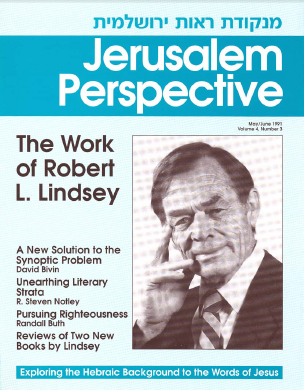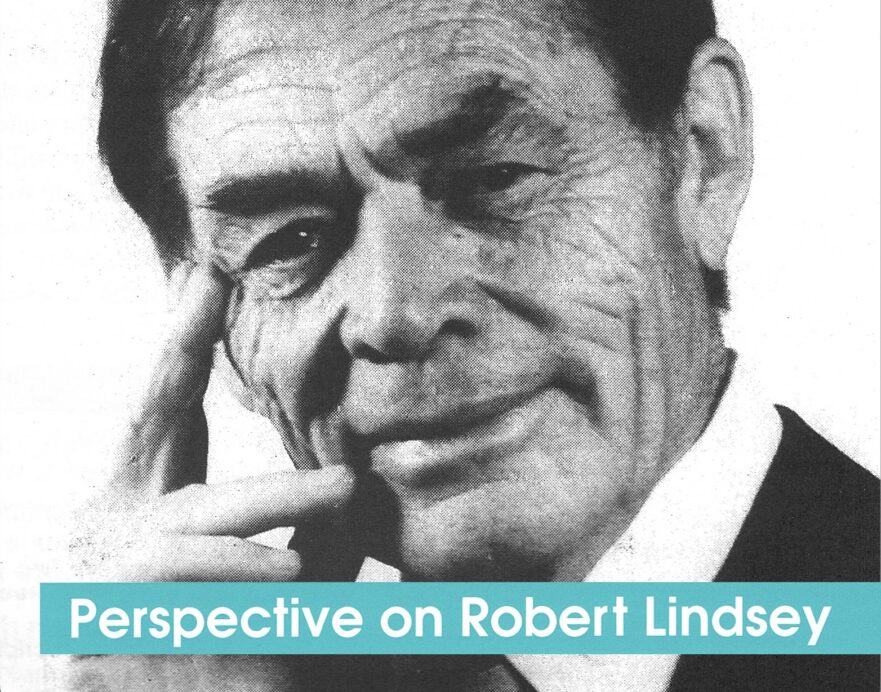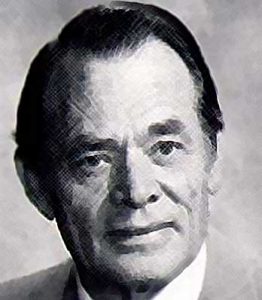Revised: 10 December 2024
Dr. Robert L. Lindsey was born in Norman, Oklahoma in 1917. He earned a B.A. degree in Classical Greek at the University of Oklahoma, and concentrated in classical languages and biblical studies during his graduate career at Princeton School of Divinity and Southern Baptist Theological Seminary.
Lindsey first came to Israel in 1939, spending fifteen months acquainting himself with the country and people, and refining his knowledge of Hebrew. He returned to Israel to serve as pastor of the Narkis Street Baptist Congregation in Jerusalem from 1945-1952. After completing his doctorate in the United States in 1954, he resumed his work with the church in Israel, eventually coming back to the Baptist congregation in Jerusalem where he served until 1986.

In the spring of 1991 Jerusalem Perspective devoted its 32nd issue to the work of Dr. Lindsey, whose discoveries became the foundation of a new school of New Testament thought—the Jerusalem School of Synoptic Research. Although his work challenges many of the conclusions of the past 200 years of New Testament scholarship, his research had not, until that point, been widely published. JP used this issue to bring a few of his more recent publications to the attention of its readers and to highlight Lindsey’s contribution to the field of synoptic studies.
In “A New Solution to the Synoptic Problem,” David Bivin presents an overview of various attempts to solve the synoptic problem, focusing on Lindsey’s solution.
One outgrowth of Lindsey’s research has been a unique concordance of the synoptic gospels.[1] In his review article, Steven Notley explains the significance of this concordance and provides examples of its usefulness.
As an exegete and a former Wycliffe Bible translator, Randall Buth has a professional interest in synoptic research as it affects Bible translation. In addition to Buth’s review of Lindsey’s Jesus, Rabbi and Lord: A Lifetime’s Search for the Meaning of Jesus’ Words, in “Pursuing Righteousness,” Buth critically examines a particular expression in Matthew 5:10, which Lindsey translated in a non-traditional way.
Joseph Frankovic reviews The Jesus Sources, a collection of lectures Lindsey delivered in Jerusalem about the interrelationship of the synoptic gospels.
Sidebar: According to Prof. Flusser…Professor David Flusser of the Hebrew University of Jerusalem has long espoused Lindsey’s synoptic theory. Flusser’s research on the synoptic gospels is based on Lukan priority, and he teaches his students “Lindseyan” theory. Here are some of Flusser’s remarks from his published works about Lindsey’s contribution to synoptic studies: Lindsey’s approach, therefore, opens a window that allows us to get closer to the original version of the life and sayings of Jesus. (From Yahadut u-Mekorot Hanatsrut [Judaism and the Sources of Christianity] (Tel Aviv, 1979), p. 31.)
Without a serious literary analysis of the first three Gospels it is impossible to know what was probably written in the ancient Christian sources which are behind them.… I accept the [synoptic] theory of Robert Lindsey…it is important that Lindsey has shown that the Synoptic Gospels are based upon an old account which was known both to Matthew and Luke, and that Mark has completely rewritten his sources. Another point of Lindsey’s theory is that Matthew used both the old account and Mark. (From “A Literary Approach to the Trial of Jesus” in Judaism and the Origins of Christianity (Jerusalem, 1988), p. 588.) |
- [1] Robert L. Lindsey, ed., A Comparative Greek Concordance of the Synoptic Gospels (3 vols., 1989). ↩
































































































